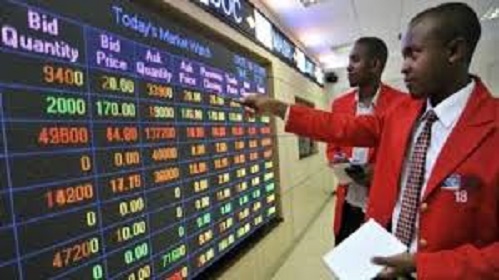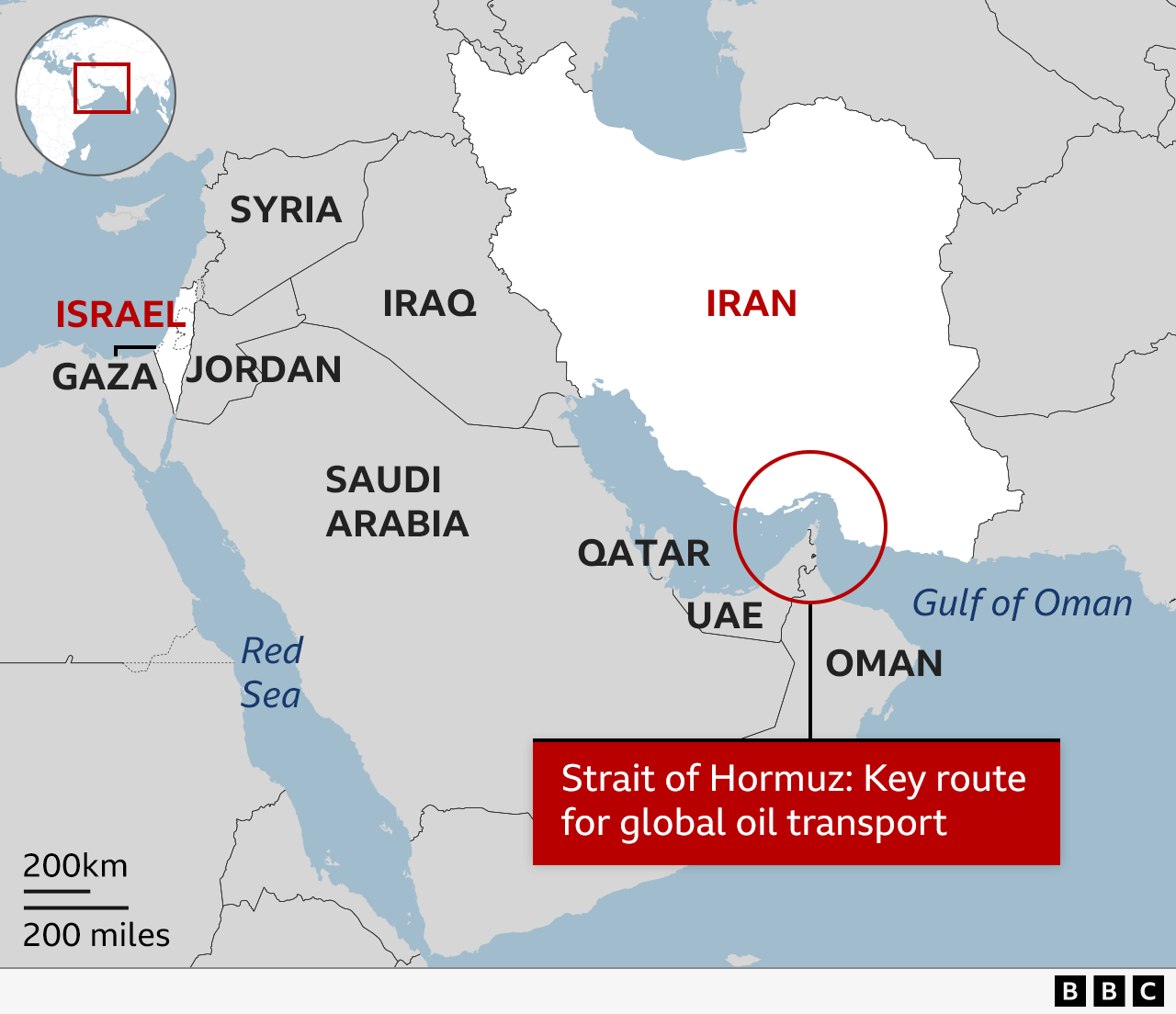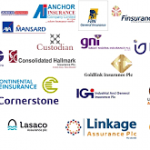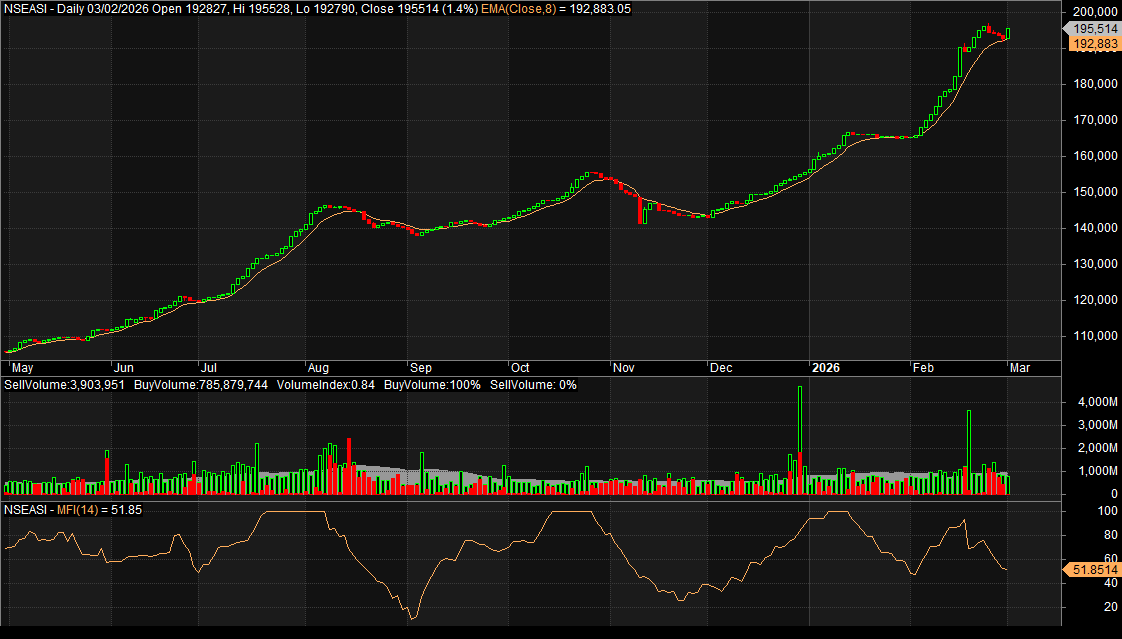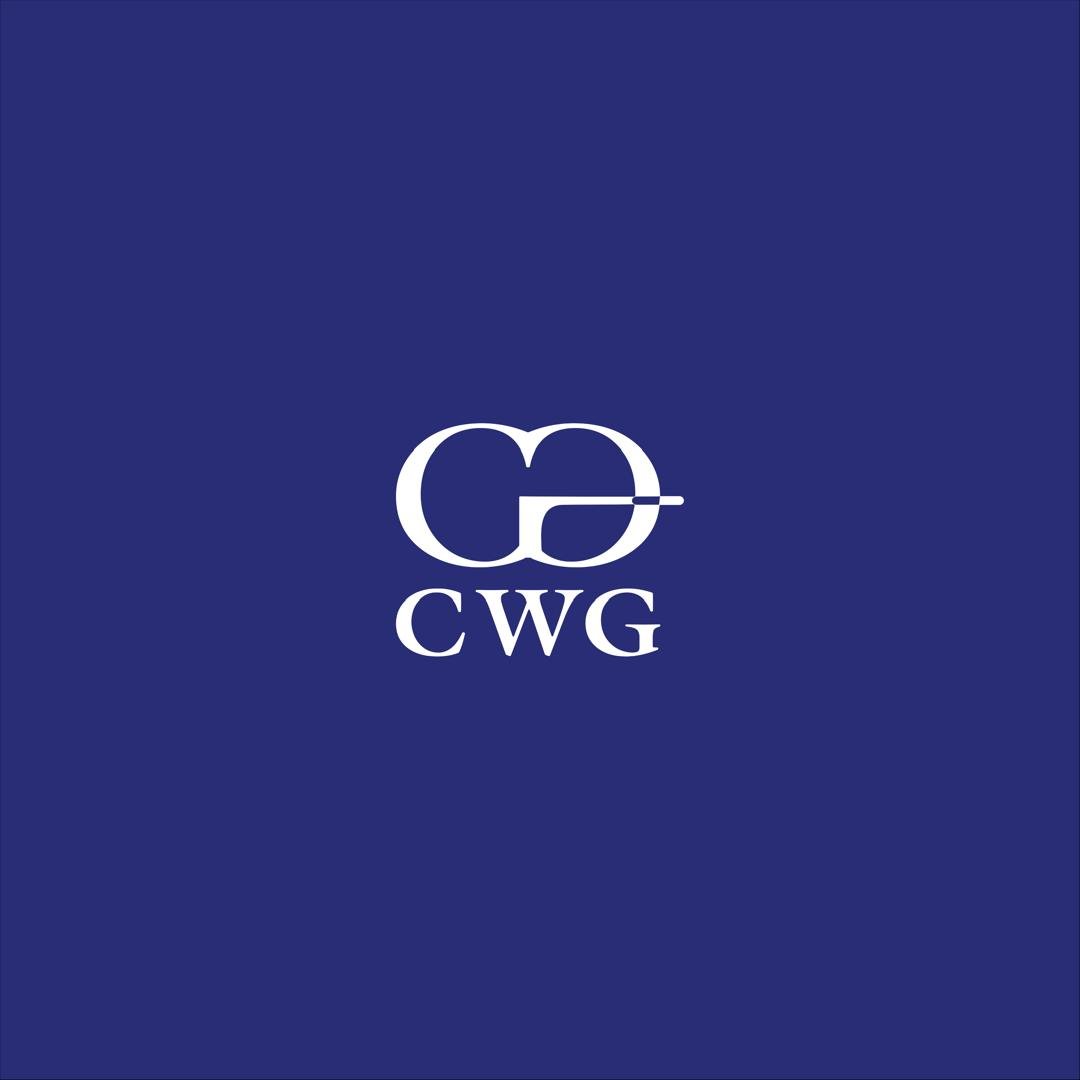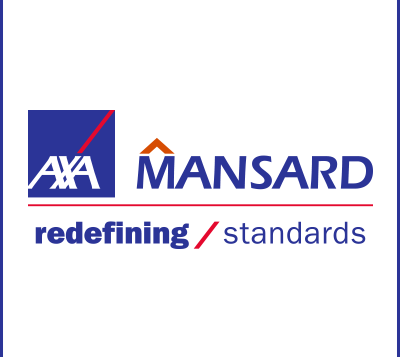
By Kanayo John
AXA Mansard Insurance Plc is a Nigerian financial services company with interests in insurance, health insurance, asset and investment management. A member of the AXA Group, the worldwide leader in insurance and asset management with 166,000 employees serving 107 million clients in 64 countries, it was listed on the Nigeria bourse in November 2009. Ever since, it has remained one of the most capitalized companies in the Insurance sector of the Nigerian Exchange. This underscores Mansard’s stability and reliability in the market.
The Company has two wholly owned subsidiaries: AXA Mansard Investments Limited, AXA Mansard Health Limited. AXA Mansard Investments Limited offers portfolio management services to both individual and corporate clients, while AXA Mansard Health Limited manages the provision of health care services through health care providers, and for that purpose accredited with the National Health Insurance Scheme.
Shareholding Structure and development
AXA Group, a global insurance and asset management company controls 76.48% of AXA Mansard Insurance Plc following the complete acquisition of 100% of Assur Africa Holdings which held a 77% stake in Mansard Insurance Plc (now AXA Mansard Insurance Plc) in December 2024. This deal strengthened AXA’s presence in the Nigerian insurance market, making it the fourth-largest insurer in the country. The remaining 23.52% stake is owned by Nigeria’s institution and individual investors.
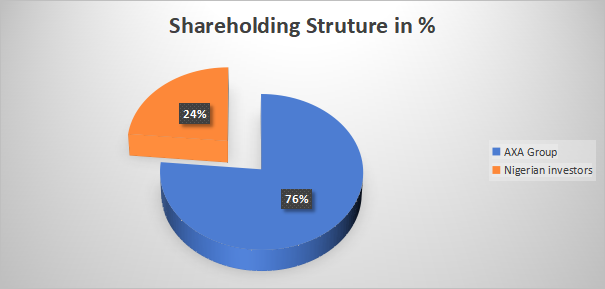
Source: Mansard Insurance Plc FY ‘24 AFS Data,
Brief on Nigerian Insurance Industry:
Notwithstanding the lingering macroeconomic challenges, the Nigerian insurance sector is expected to remain resilient, with a 20%-25% growth in insurance revenue projected in 2025, supported by the growing acceptance of insurance products. Nonetheless, insurance penetration is expected to remain constrained at less than 1% (2024: 0.65%) of Gross Domestic Product (GDP) in the short term, underperforming peer regional hubs, due to low base effects.
The industry’s earnings and capital management could improve over the medium term, with the benefits from the transition to IFRS 17 accounting standards, effective from January 1, 2023, which is likely to outweigh the risks posed by rising inflation on total underwriting expenses. The Nigerian government’s recent economic reforms and FX liquidity management is expected to boost investment in the sector, stimulating income while mitigating earnings risk.
We had expected 2025 to be a year that will again usher in recapitalisation and renewed legislation that will dismantle every stronghold that has hampered the sector’s growth and development. This optimism was anchored on the passage in late in 2024 of the Nigerian insurance Industry Reform Bill by the Nigerian Senate, and the total ₦23.44 trillion earmarked for infrastructural development by the Federal Government in the 2025 Appropriation Bill.
Highlights of the Insurance 2024 Bill
Key highlights of the legislation which ignited a fire of hope in the sector in 2025 and beyond include the new minimum capital requirements requiring companies to be adequately capitalised to underwrite risks and protect policy holders. Risk-Based Supervision, strengthened consumer protection, and streamlined regulatory framework among others. In the words of National Insurance Commission (NAICOM), this passage of the Insurance Sector Reform Bill comes after years of operating with laws that have failed to keep pace with the country’s evolving economic landscape. This is unlike other sectors that have undergone multiple phases of legislative reforms to reflect current economic realities.
Need for recapitalisation in the industry
Presently, the minimum capital requirements for insurance companies are: ₦2 billion for life underwriters, ₦3 billion for general business, ₦5 billion for composite firms and ₦10 billion for reinsurers. But in the new bill, the regulator is proposing ₦10 billion for life underwriters, N15 billion for general business underwriters, ₦25 billion for composite firms and ₦35 billion for reinsurers. Both insurance managers and their regulator are confident that a presidential assent of the bill will make the sector robust enough to underwrite some of the big-ticket accounts that are often flown abroad due to the low capacity of indigenous firms.
AFS FY-2024 Financial Performance Review
Mansard recently released its audited financial statements (AFS) for the calendar year ended 31 December 2024, an analysis of which showed that both Gross Revenue (GRV) and Profit After Tax (PAT) expanded by 59.1% year-on-year (y/y) and 116.6% y/y to settle at ₦131.67 billion and ₦24.87 billion respectively, compared to the numbers achieved in FY ‘23.
Topline growth bolstered by healthcare division and others
The growth in GRV was chiefly bolstered by improved returns in the following divisions: Health, oil & Gas, Fire, and savings – which grew by 45.5% y/y, 115.9% y/y, 77.2% y/y, and 49.3% y/y, respectively. Each of the four divisions contributed 35.9% (FY ‘23: 39.2%), 28.5% (vs 21.0%), 9.6% (vs 8.6%), and 9.7% (vs 8.6%) to the GRV, respectively, in thate order. The four divisions controlled 83.6% of the total GRV during the perioid. Markedly, the growth in the health division continues to be driven by the growing access to healthcare needs by enrolees via the Heath Maintenance Organisation (HMO).
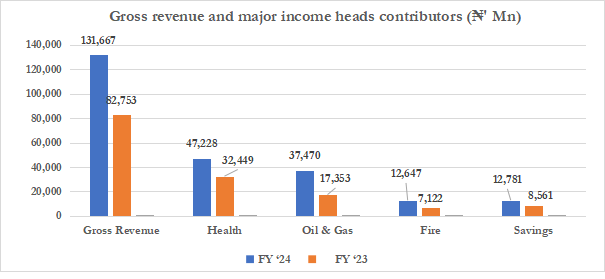
Source: Mansard Insurance Plc FY ‘24 AFS Data, ImperialAsset Research
However, we observed that both insurance and reinsurance service expenses surged higher than the growth in GRV by 62.4% y/y and 72.3% y/y amid increasing claims by policy holders. As such, insurance income margin shrunk to 10.4%, compared to 13.6% posted in FY ‘23.
Sturdy GRV helps subdue the effect of OPEX
The numbers were despite the challenging ease of doing business in the country, particularly energy costs, inflationary pressure, and volatile foreign exchange movement. Operating expenses (OPEX), for example, rose by 37.7% y/y to ₦19.55 billion, compared to ₦14.20 billion recorded in FY ’23. The OPEX built up from pressures exerted by staff costs: 29.1% y/y, information technology expenses: 139.0% y/y, and diesel expense: 83.4% y/y. However, following the strong performance posted by income heads, Cost-to-income (CIR) margin dropped to 0.61% y/y, compared to 0.84% in FY ‘23.
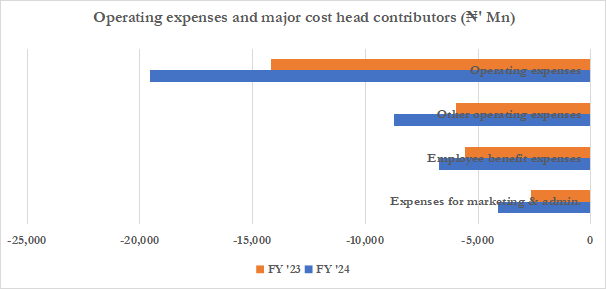
Source: Mansard Insurance Plc FY ‘24 AFS Data,
Further down the costs layout was finance costs. We observe that Mansard spent ₦542.85 million and ₦48.43 million to service borrowing and lease liabilities respectively. When net-off from an income of ₦0.36 million, it resulted in a net finance cost of ₦591.93 million. Markedly, the management has redeemed most of its finance obligations in the prior year, leading to significant reduction in borrowing costs by 47.5% y/y in the period under review.
Bottom-line continues to look up, as it grows by triple digits
The improved y/y performance by income heads subdued the impact of cost line expenses, with pre-tax profit rising by 100.9% y/y to ₦31.69 billion. Despite the increase in tax liabilities (inclusive of income, education, and information tech taxes), up by 53.8% y/y, profit after tax (PAT) rose sturdily by 91.0% y/y to settle at ₦24.87 billion.
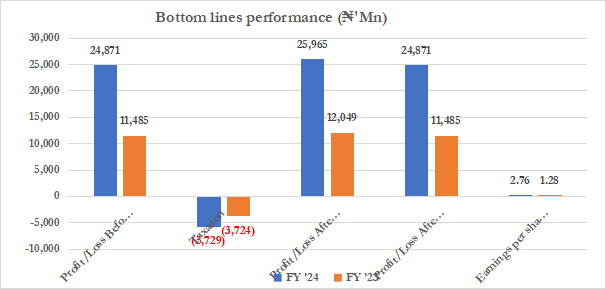
Source: Mansard Insurance Plc FY ‘24 AFS Data
At the income level in the above table especially the income attributable to owners of the parent, an earnings per share (EPS) of ₦2.76 kobo was achieved, which was 116.5% higher than ₦1.28 kobo in FY ‘23.
Note: Mansard has its shares listed at ₦2.00 per value. To derive the EPS, therefore, we must first divide total outstanding shares by four before applying the EPS formula.
Mansard currently carry a cum-div of 45kobo
The Board of Directors has recommended a final dividend of ₦0.45 per share to shareholders whose names will be in the company’s registers at the close of business on 25 June 2025. At the closing market price of ₦9.55 posted on Thursday, 20 June 2025, Mansard currently conveys a dividend yield (DY) of 4.71%.
Total asset continues the upward trend
The Group’s total assets rose by 37.2% y/y to settle at ₦193.61 billion, compared to the number achieved in FY ‘23. Growth here was chiefly supported by investment securities in sundries: 74.3% y/y, and investment properties: 52.2% y/y. Total liabilities equally rose by 41.1% y/y to ₦140.73 billion, and was fed by substantially increase in insurance contract liabilities: 23.3% y/y, and other technical liabilities: 178.4% y/y.
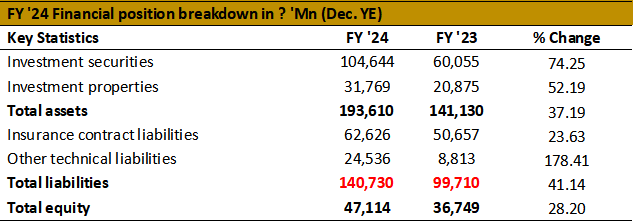
Source: Mansard Insurance Plc FY ‘24 AFS Data,
On a balance of factors, Shareholders’ fund (attributable to owners of the parent company) rose moderately by 28.2% to ₦47.11 billion, compared to ₦36.75 billion reported in FY ’23.
UFS 3M ’25 Performance Review
In the recent unaudited financial statements (UFS) for the three months (3M ’25) ended 2025, Mansard GRV rose by 26.7% y/y to settle at ₦40.33 billion. The improved GRV was imparted significant by the four major income heads highlighted in our FY ’24 review. The healthcare division grew by 51.6% y/y to ₦15.27 billion and represented 37.9% of the GRV (3M ’24: 31.6%). Markedly, the diversified business portfolio, efficient retail business drive and sustained growth of the company’s commercial lines continues to be pivotal to income heads. We foresee this development gaining ascendancy the rest of the year amid government economic reforms and positive macroeconomic outcomes.
However, we observe that investment income head dropped significantly by 59.4% y/y to ₦5.85 billion, compared to ₦14.41 billion achieved in 3M ’24. This is attributable to the relative stability seen in the foreign exchange market, withering the windfall profit on dollarized investment instruments witnessed in 2023 and 2024. In our view, this is not a challenge to RVG going forward when we consider that the income head here does not carry significant weight in the income stream.
See the table below for the Mansard’s 3M ‘25 performance highlights:
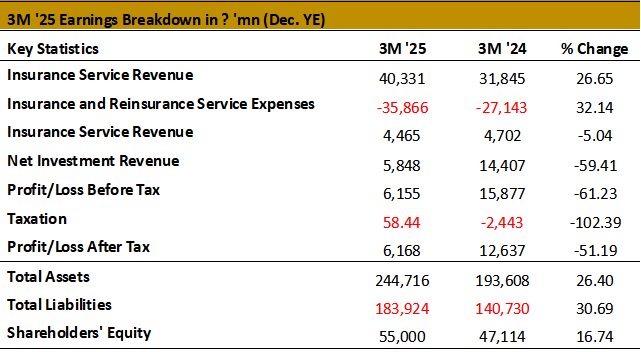
Source: Mansard Insurance Plc 3M ‘25 AFS Data,
On the cost lines, OPEX rose by 24.5% y/y to ₦5.32 billion, compared to ₦4.30 billion posted in 3M ’24. The uptrend in OPEX was helped by the usual suspects – staff costs, marketing and administration expenses, and contract service costs. The contract service costs here relate to payments made to outsourced personnel – transaction officers, technicians, cleaners, creche personnel, security men, and drivers.
On the bottom line, following the heavy effect of the reduced FX gains on income, pre-tax profit dropped to ₦6.16 billion, representing 61.2% y/y decline from ₦15.88 billion posted in 3M ’24. After adjusting for tax current obligations and deferred tax credit, Mansard’s bottom line (PAT) settled at ₦6.17 billion, representing 51.2% y/y decline when compared to ₦12.64 billion achieved in 3M ’24.
Based on the above PAT number, 3M ’25 EPS settled at ₦0.69 kobo, compared to ₦1.40 kobo achieved in 3M ’24.
Investment case for AXA-Mansard
AXA-Mansard is a diversified investment company with interests in insurance, health insurance, asset and investment management. Markedly, the structure of the Group allows inherent synergy across the business divisions, helping to create unrivalled value propositions along multiple customer value chains. This diversification has also enabled the Group to optimise financial resources and productivity while enabling top line growth as could be seen in the recent FY ’24 financial scorecards. Looking ahead, we believe the group will continue to leverage on the diversified businesses thereby optimising revenue generation.
Valuation and Estimates:
Using the sum-of-the-parts valuation (SOTP) and relative valuation methodologies (RVM), we arrive at a target price (TP) of ₦12.25 per share. Our TP builds from an improved FY ’24 ROE of 52.8%, a relatively modest PE ratio of 3.5x, and modest low net debt level. Note: the TP here reflects MANSARD’s management ability to deploy resources to income generating instruments, improved liquidity position, and growing capital structure. At our TP above, MANSARD currently carries an upward potential of 28.3% when compared to the closing market price of ₦9.55 per share posted on Thursday, 19 June 2025.
Based on the above valuation and the compelling business case for the company going forward, we place a BUY rating on the company’s shares at the current market price of ₦9.55 per share.
Note: Our TP here has been forecast for a period up to nine months (9M-TP). Therefore, it covers period up to February/March 2025 when the audited financial statements (AFS) of FY ’25 would have been released to the market. Note: the 9M-TP is amenable to periodic adjustment as earnings and sensitive Group’s information or data are made available.
However, the downside to the TP projection above could come from FX base effect when related to subsequent quarters’ numbers, especially, 6M ’25 and 9M ’25, and structural challenges related to ease of doing business and operating costs.
See the table below for the Mansard’s FY ‘24 performance highlights:
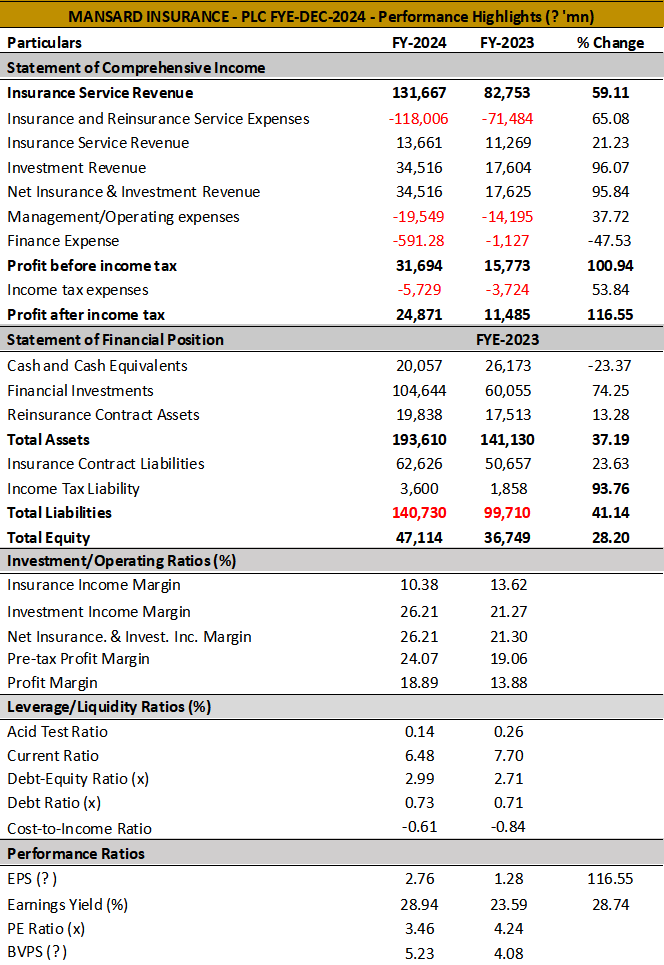
Source: Mansard Insurance Plc FY-2024 AFS Data


